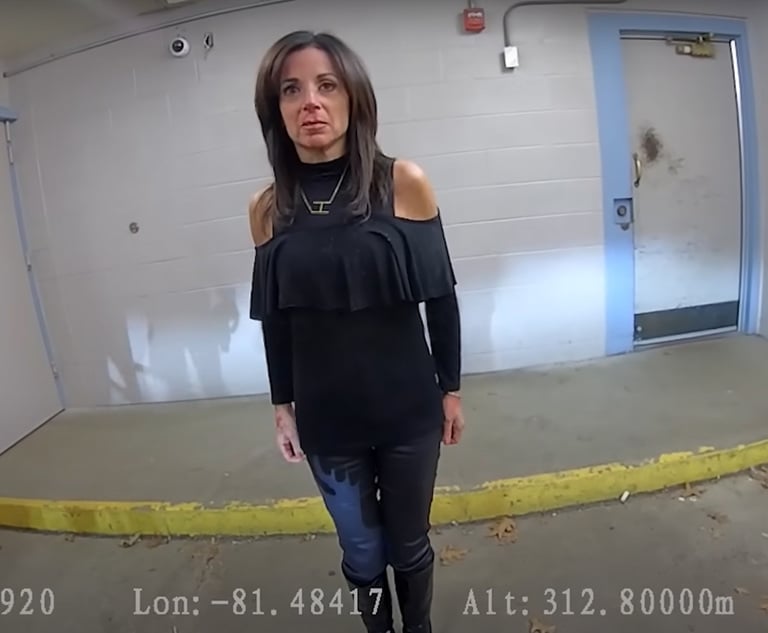Liability Releases for Background Checks Are Unlawful
The federal Fair Credit Reporting Act (FCRA) requires employers to first inform applicants and employees about the intent to obtain and use a background…
June 22, 2017 at 12:00 AM
5 minute read
The original version of this story was published on Law.com
The federal Fair Credit Reporting Act (FCRA) requires employers to first inform applicants and employees about the intent to obtain and use a background check to make employment-related decisions before the employers are permitted to actually get the background check. But what the law does not do is provide employers with a template disclosure or any concrete guidance on what the disclosure should say.
Employers in all industries perform background checks as a part of their pre-employment screening process, sometimes performing such checks post-employment, as well. The federal Fair Credit Reporting Act (FCRA) requires employers to first inform applicants and employees about the intent to obtain and use a background check to make employment-related decisions before the employers are permitted to actually get the background check. The FCRA also requires employers to obtain the employee's or applicant's permission before procuring the background check. But what the law does not do is provide employers with a template disclosure or any concrete guidance on what the disclosure should say. Rather, the law simply forbids employers from including anything beyond “solely the disclosure” and authorization in the form used to inform individuals about the employer's intent to obtain a background check.
This article appeared in Employment Law Strategist, an ALM publication delivering news and analysis for employment law practitioners, Corporate Counsel, In-House Counsel. Visit the website to learn more.
Catastrophic Risks
It may seem like a simple issue, but the risk of violating this provision — dubbed the “Stand Alone Disclosure” rule — can be catastrophic. Because of the way the statute's damages scheme is written, a mere violation of the provision may be negligible. However, if a violation is found to be “willful,” it can subject the company to damages up to $1000, and considering how many of these cases are brought as class actions, it's easy to see how a seemingly innocuous form can result in bet-the-company litigation.
For years, employers have written what they consider to be straightforward forms. With so little guidance, many employers have chosen to include a liability waiver as part of the disclosure, releasing the employer from liability for any incorrect information it may receive from the background check vendor and waiving the applicant's right to sue the employer for decisions made as a result of the background check information. Many employers thought this was a relatively safe practice; there was little, if any, litigation on the Stand Alone Disclosure rule, and no courts had definitively ruled on the permissibility of including the release.
Additionally, because of the FCRA's damages scheme, the only meaningful way for plaintiffs to succeed in litigating a Stand Alone Disclosure claim is to prove a willful violation. And the Supreme Court has previously held that the test for willfulness requires, in part, guidance from the Courts of Appeals warning employers away from taking a particular action. With very little administrative guidance and no appellate court decisions, many employers felt they could enjoy at least some insulation from liability as a result of their good-faith disclosure drafting efforts.
Enter the U.S. Court of Appeals for the Ninth Circuit, which issued the first appellate court decision on the Stand-Alone Disclosure rule in January 2017.
Syed Sets Precedent
The case, Syed v. M-I LLC, is a putative class action in California, where the district court twice dismissed the plaintiff's claim that inclusion of a liability release in the defendant's FCRA disclosure was a willful violation. On appeal, not only did the Ninth Circuit find that the plaintiff stated a claim, but it found, as a matter of law, that the defendant committed a willful violation by including such a release.
This holding is precedential. Syed represents the first appellate decision on the Stand Alone Disclosure rule, and many courts will consider it to be dispositive in light of the Supreme Court's test. Indeed, the case has already been cited several times not just for its holding on willfulness, but for its contribution to the ongoing discussion of standing following the Supreme Court's 2016 Spokeo decision as well. Going forward, at a minimum, employers using disclosures with liability releases can expect to face class actions because of the content of their disclosures.
How Employers Can Mitigate Risk
In the aftermath of Syed, employers need to be vigilant about language used on their background check disclosure forms. The Ninth Circuit's ruling has finally set some guidance for employers, but it highlights the need for basic HR forms. In an ideal world, the government would provide a template it considers to be compliant, but this seems an unlikely prospect in the near future. The onus, therefore, remains on employers to heighten their attention to the FCRA's requirements and related litigation. Presently, the best thing employers can do to avoid potentially catastrophic damages is to be aware that including a liability release could subject them to significant penalties, and then to take the simple step of having a legal expert review their forms for protection.
Employers that use third-party vendors that take over the background-check process for potential employees have to be especially vigilant, as they sometimes delegate their disclosure obligations to those vendors. This is a risky practice that could expose employers to liability. Employers should maintain control over the process to the full extent possible, which may mean writing the form that's sent to potential employees themselves, and including an indemnification provision in their contract with a third-party service provider.
***** Sarah Riskin is a labor and employment attorney with Nilan Johnson Lewis in Minneapolis .
This content has been archived. It is available through our partners, LexisNexis® and Bloomberg Law.
To view this content, please continue to their sites.
Not a Lexis Subscriber?
Subscribe Now
Not a Bloomberg Law Subscriber?
Subscribe Now
NOT FOR REPRINT
© 2024 ALM Global, LLC, All Rights Reserved. Request academic re-use from www.copyright.com. All other uses, submit a request to [email protected]. For more information visit Asset & Logo Licensing.
You Might Like
View All
In Lawsuit, Ex-Google Employee Says Company’s Layoffs Targeted Parents and Others on Leave
6 minute read
‘A Force of Nature’: Littler Mendelson Shareholder Michael Lotito Dies At 76
3 minute read
Former Cleveland Meteorologist Sues TV Station for Alcohol Use Disorder Discrimination Claims

Employers Scramble to Get Immigration Records in Order Ahead of Trump Crackdown
6 minute readTrending Stories
- 1The Key Moves in the Reshuffling German Legal Market as 2025 Dawns
- 2Social Media Celebrities Clash in $100M Lawsuit
- 3Federal Judge Sets 2026 Admiralty Bench Trial in Baltimore Bridge Collapse Litigation
- 4Trump Media Accuses Purchaser Rep of Extortion, Harassment After Merger
- 5Judge Slashes $2M in Punitive Damages in Sober-Living Harassment Case
Who Got The Work
Michael G. Bongiorno, Andrew Scott Dulberg and Elizabeth E. Driscoll from Wilmer Cutler Pickering Hale and Dorr have stepped in to represent Symbotic Inc., an A.I.-enabled technology platform that focuses on increasing supply chain efficiency, and other defendants in a pending shareholder derivative lawsuit. The case, filed Oct. 2 in Massachusetts District Court by the Brown Law Firm on behalf of Stephen Austen, accuses certain officers and directors of misleading investors in regard to Symbotic's potential for margin growth by failing to disclose that the company was not equipped to timely deploy its systems or manage expenses through project delays. The case, assigned to U.S. District Judge Nathaniel M. Gorton, is 1:24-cv-12522, Austen v. Cohen et al.
Who Got The Work
Edmund Polubinski and Marie Killmond of Davis Polk & Wardwell have entered appearances for data platform software development company MongoDB and other defendants in a pending shareholder derivative lawsuit. The action, filed Oct. 7 in New York Southern District Court by the Brown Law Firm, accuses the company's directors and/or officers of falsely expressing confidence in the company’s restructuring of its sales incentive plan and downplaying the severity of decreases in its upfront commitments. The case is 1:24-cv-07594, Roy v. Ittycheria et al.
Who Got The Work
Amy O. Bruchs and Kurt F. Ellison of Michael Best & Friedrich have entered appearances for Epic Systems Corp. in a pending employment discrimination lawsuit. The suit was filed Sept. 7 in Wisconsin Western District Court by Levine Eisberner LLC and Siri & Glimstad on behalf of a project manager who claims that he was wrongfully terminated after applying for a religious exemption to the defendant's COVID-19 vaccine mandate. The case, assigned to U.S. Magistrate Judge Anita Marie Boor, is 3:24-cv-00630, Secker, Nathan v. Epic Systems Corporation.
Who Got The Work
David X. Sullivan, Thomas J. Finn and Gregory A. Hall from McCarter & English have entered appearances for Sunrun Installation Services in a pending civil rights lawsuit. The complaint was filed Sept. 4 in Connecticut District Court by attorney Robert M. Berke on behalf of former employee George Edward Steins, who was arrested and charged with employing an unregistered home improvement salesperson. The complaint alleges that had Sunrun informed the Connecticut Department of Consumer Protection that the plaintiff's employment had ended in 2017 and that he no longer held Sunrun's home improvement contractor license, he would not have been hit with charges, which were dismissed in May 2024. The case, assigned to U.S. District Judge Jeffrey A. Meyer, is 3:24-cv-01423, Steins v. Sunrun, Inc. et al.
Who Got The Work
Greenberg Traurig shareholder Joshua L. Raskin has entered an appearance for boohoo.com UK Ltd. in a pending patent infringement lawsuit. The suit, filed Sept. 3 in Texas Eastern District Court by Rozier Hardt McDonough on behalf of Alto Dynamics, asserts five patents related to an online shopping platform. The case, assigned to U.S. District Judge Rodney Gilstrap, is 2:24-cv-00719, Alto Dynamics, LLC v. boohoo.com UK Limited.
Featured Firms
Law Offices of Gary Martin Hays & Associates, P.C.
(470) 294-1674
Law Offices of Mark E. Salomone
(857) 444-6468
Smith & Hassler
(713) 739-1250









